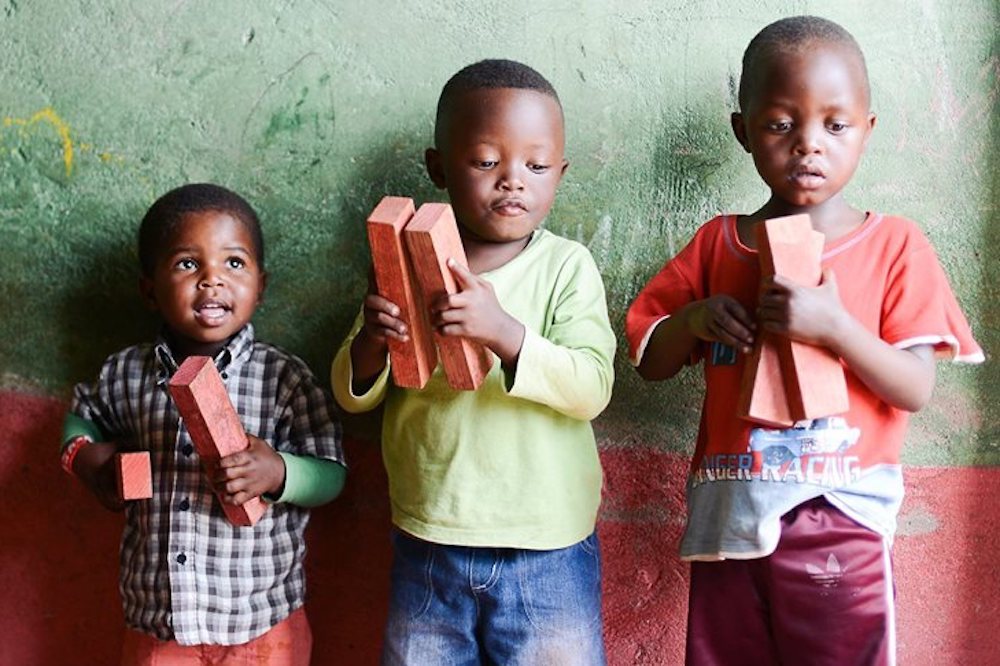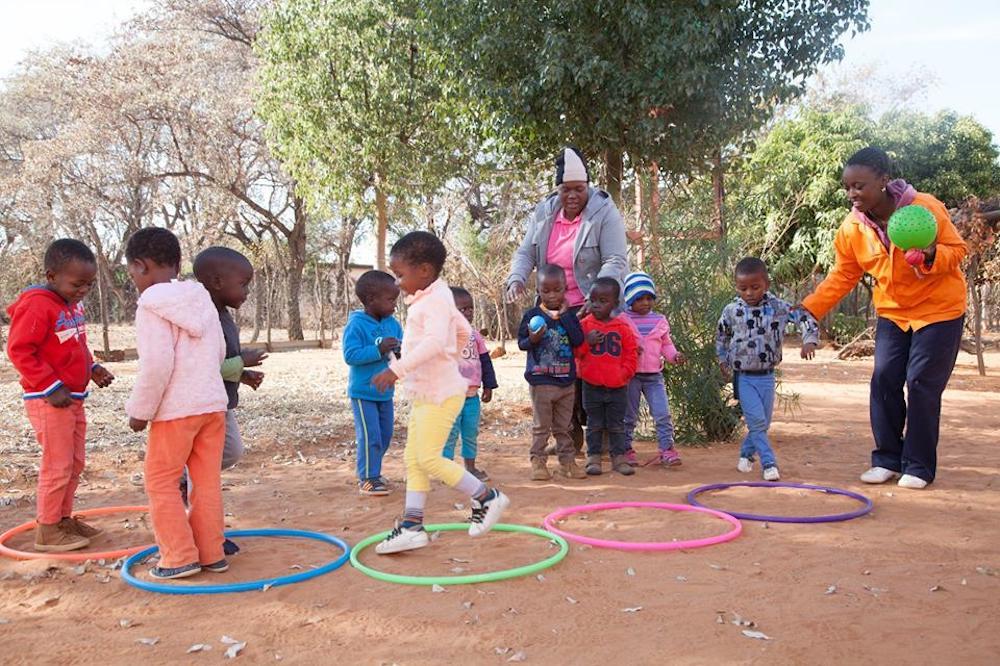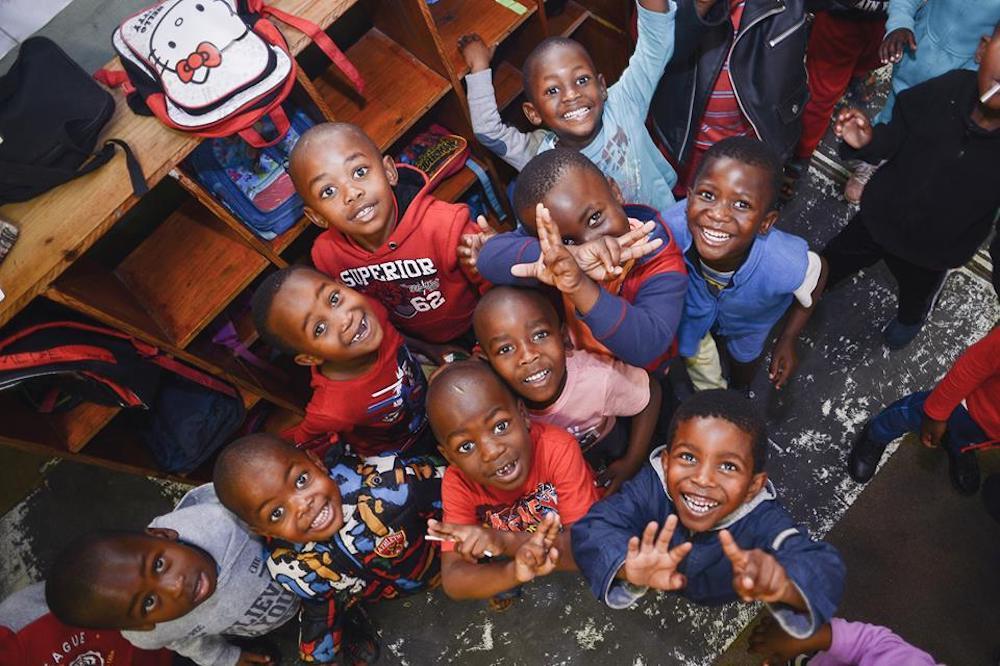
South Africa’s poorest children miss out on early years care and start school ‘on back foot’

Child nutrition (Early years), Childcare, Discrimination of marginalised children, Early childhood development, Learning through play (Early years), Right to education
Children under six who live in rural areas are being denied vital education and other services, says an early childhood development programme.
Almost half of South Africa’s young children do not have access to basic services – and that could affect them for the rest of their lives.
Children under six who live in rural areas are not getting the best start when it comes to health services, early education and care. The gap between the poorest children and the rest of the country is also widening.
According to the South African Early Childhood Review 2017, there are stark inequalities between and within provinces.
“Children aged six years and younger, who live in the rural areas, are receiving disproportionately poorer services,” it revealed.
However, this year also saw the first government cash injection for early childhood development – a huge step in the fight for young children’s learning and needs to become a priority.
Theirworld’s 5#5 campaign raises awareness of how important it is to support children in those crucial first years of life.
A child’s brain is 90% developed by the time they are five years old – and all children need access to quality care including nutrition, health, learning, play and protection.
Theirworld spoke to Dr Colin Almeleh, Executive Director of Ilifa Labantwana, a South African early childhood development programme which co-authored the report.
He said: “In terms of budgeting, 2017 saw the introduction of South Africa’s first Conditional Grant for ECD. This is an opportunity to bring quality early learning opportunities to children living in poverty.
“Currently, a child coming from a poor household has only a 50% chance of benefitting from early learning.
“It’s estimated that there are one million children aged three to five years who are starting formal school unprepared because they haven’t benefited from a quality early learning education.”

Children at an early learning playgroup in the north-west of South Africa (Ilifa Labantwana)
The South African Early Childhood Review assessed data across five components of services – maternal and child healthcare, nutrition, support for primary caregivers, early stimulation and social security.
Dr Almeleh explained: “Variations in service delivery can have lifelong consequences on their health, learning ability and earning potential.
“This is serious when you consider that 43% of our young children are living in rural areas. The 2017 review found that young children in rural areas live far from clinics and are therefore less likely to be fully immunised or screened for developmental delays.
“Rural children are less likely to receive micronutrient supplementation if they are malnourished. They are also far less likely to be exposed to an early learning programme and therefore start school on the back foot.”
The provinces with the highest share of rural children under the age of six are the Eastern Cape with 60%, Limpopo 83%; KwaZulu-Natal 61% and Mpumalanga 85%.
It’s estimated that there are one million children aged three to five years who are starting formal school unprepared because they haven’t benefited from a quality early learning education. Dr Colin Almeleh, Executive Director of Ilifa Labantwana
Ilifa Labantwana programme’s aim is for one million children, from birth to five, to get access to quality ECD through the Early Learning Subsidy.
Dr Almeleh said: “Plans to deliver services need to be accelerated and they should be flexible – differentiating between the needs of the urban and rural populations.
“The 2017 publication tells us that South Africa has near-universal uptake of antenatal care. Therefore, one immediate area for intervention is the healthcare system, as every visit by a caregiver and their child to a healthcare facility and every visit by a health worker to a household is an opportunity to improve access.”
Organisations like Khula Education are also trying to help young children – by teaching English alongside their home language to give them a better chance when it comes to their later education.
A spokesman said: “Through our Preschool Programme, we aim to give these young children foundations on which to build their education.

Preschool education sets up young children to be prepared for starting school (Ilifa Labantwana)
“With a quality preschool education, children start to learn English alongside their home language, giving them the benefit of bilingualism from an early age, meaning that, later in their schooling, they have a huge advantage.”
KHULA works closely with communities and schools in the Umzinyathi District of KwaZulu Natal, helping to provide the resources, skills and opportunities the pupils need.
In 2015 South Africa’s government introduced the National Integrated Early Childhood Development Policy, which prioritises the delivery of services.
Dr Almeleh said: “This was a first for the country. Over the last two years, the government has been in the process of developing an implementation plan for the policy.
“We will also need to see some changes to existing legislation, new leadership structures, coordination and monitoring mechanisms, and increase budget allocation before we can start to make progress towards the goals of the policy.”

More news

MyBestStart programme gives young girls the education they deserve
